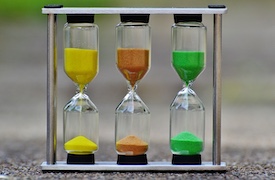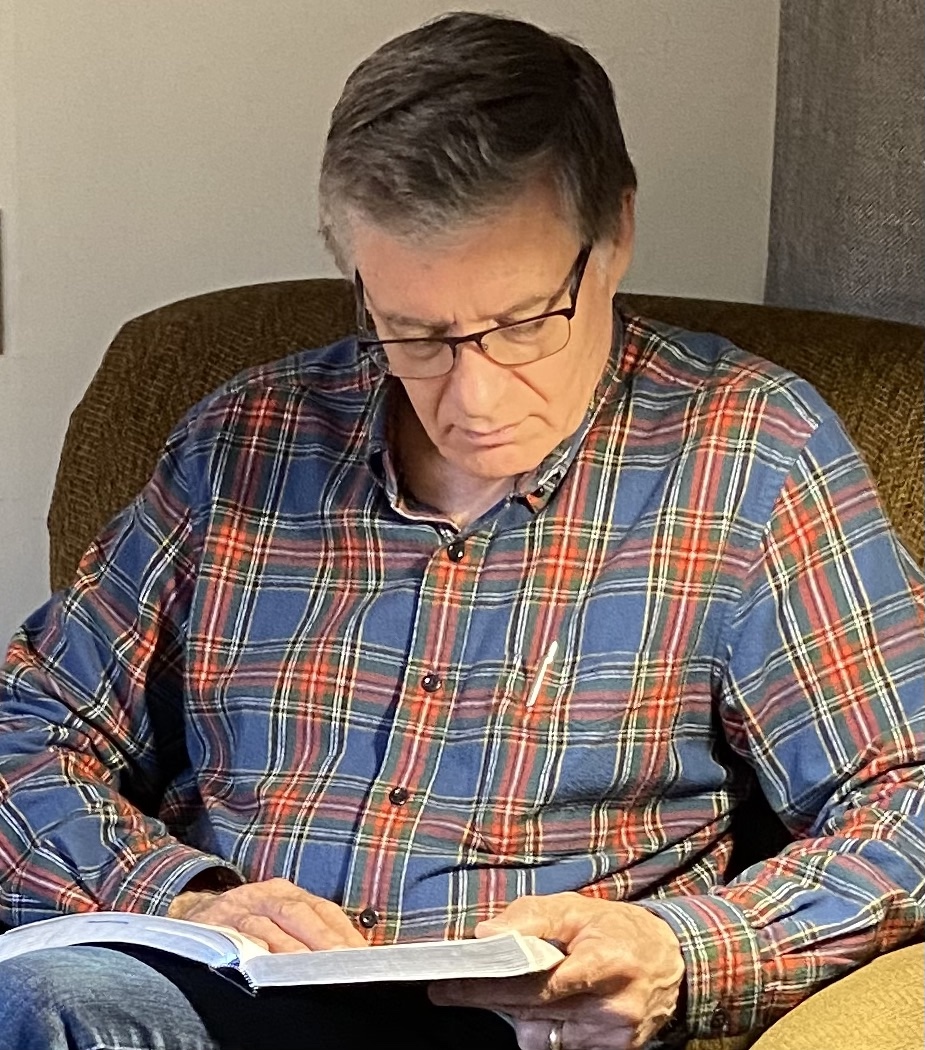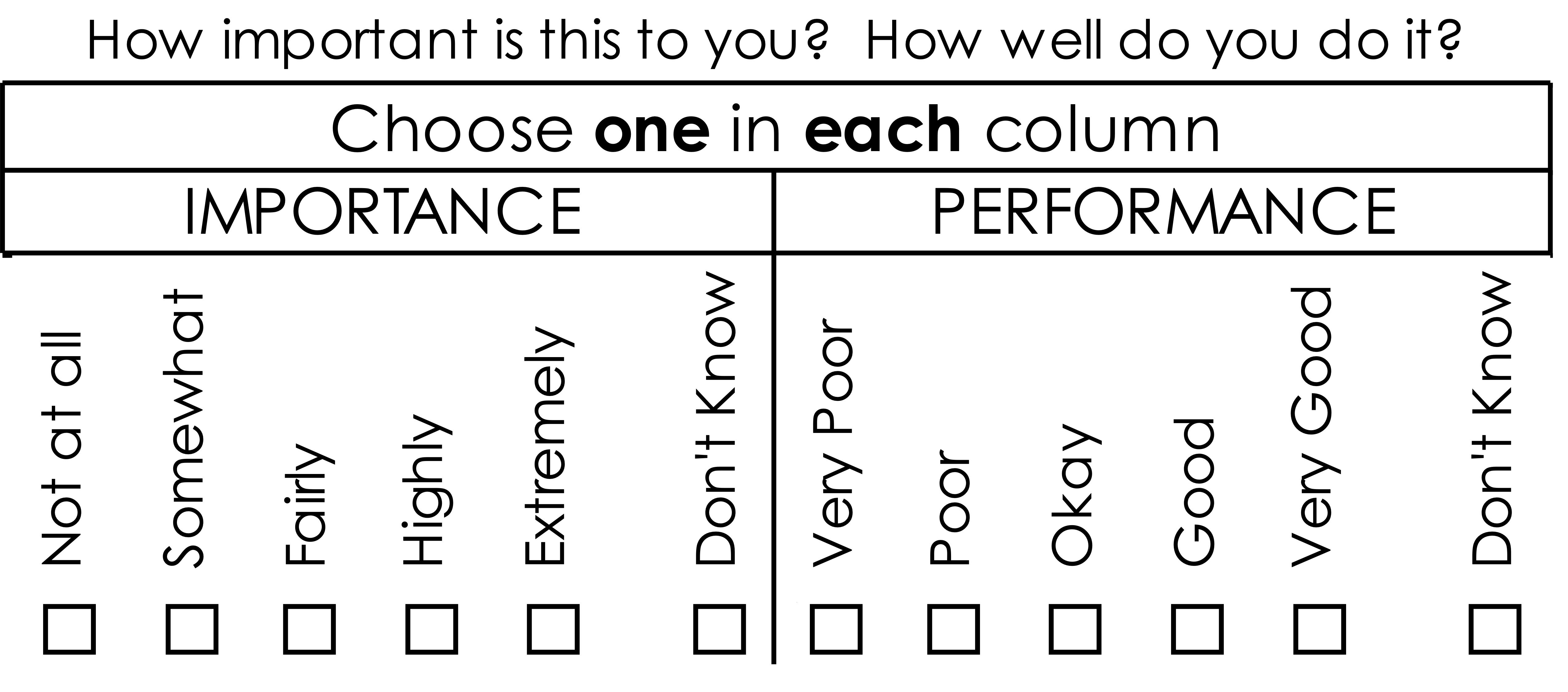Time to Take a Break or Change Pace?
- Home
- Basic Productivity Skills
- Time to Take a Break
Time to take a break or change pace during your busy day?
I'm not talking about taking a day off, or scheduling a holiday. I'm talking about getting up from the desk, or ceasing the repetitive task and doing something different, even for a short period of time. Wise leaders know doing so will increase productivity at work.
Many leaders and executives run with their adrenaline system pumping in high gear all day long. This is not healthy. Our bodies are designed to cycle through periods of intensity and periods of recovery. Much like an elastic band; it can be stretched but to retain its effectiveness it needs to return to rest.
If you have been sitting a lot, get up and go for a walk. It will clear your mind and increase your efficiency. If you have been on the road and constantly talking for an extended period, do some desk or other work with less need to talk with others.
Vary your pace throughout the day or over the course of the week. Practice an intensity-recovery cycle. It will allow you to stay at peak performance and not peak adrenaline saturation.
"Most of us live with a sense of time urgency, as well as a sense that we must do something meaningful with our lives. Because life is so short and opportunities are limited, many of us hurry through life at a frantic pace, with little tolerance for anything that blocks our goals or delays our accomplishments. We devote little time to the pursuit of spiritual things, and we chase ourselves to an early grave by ignoring the effect that 'hurry sickness' can have on our minds and bodies."
Dr. Archibald Hart, Adrenaline and Stress
Five Days of Coaching to Help You Know When it's Time to Take a Break, and Then Take It

DAY ONE
Take some time today to think about how you cycle through your week from periods of intensity to periods of recovery. Perhaps draw a time line of your week and plot this cycling pattern. What do you notice? A small change in your intensity-recovery cycle can make a substantial change in the effectiveness with which you do your work.
The Coach asks:
- Plot a timeline of your intensity-recovery cycling through the last seven days.
- Roughly what percentage of your time has been about intensity? Recovery" How much do you resemble an elastic band?
- What pattern of thinking has gotten you to where your situation is right now? What might need to be adjusted?
- How willing are you to selectively reduce intensity in order to embrace greater effectiveness? Do reduced intensity and effectiveness even equate for you? In simple language .. During your busy workday, how ready are you to act when your body and mind is telling you it's time to take a break?
DAY TWO
If you do a lot of sitting, work consciously today on frequently getting up and moving around. Learn and do some simple stretches. Turn your thinking to something else just for a short time. Look at something far away to give the eyes a change. Stand up every 20 minutes and notice how your energy level responds throughout the day.
The Coach Asks:
- What simple things (like those mentioned above) could you do to introduce a change of pace into your day?
- What would be the benefits of doing so? To your physical well-being? Your energy levels? Renewing your soul and spirit? Clear thinking? General attitude toward work and others?
- Do a few things to change the pace. How did your energy level actually respond to the few changes you introduced? Will it take a few days of practice to notice? Maybe. Give it some time.
- Stretch. Maybe others will too. Maybe you'll all win.
DAY THREE
Think about what 'quality recovery time' means to you. What rejuvenation practices do you have now? Think of a few simple ways in which they could be improved. Put those into practice.
The Coach Asks:
- What does "quality recovery time" mean to you? How else might you say it? What does a 60 second "get up and move" do for you? What seems to be an optimum time simply to change your pace in some way?
- What would you hope for in rejuvenation? How will you continue to be more intentional about that each and every day?
- What WILL you do moving forward?
- How will you hold yourself accountable for doing this?
DAY FOUR
Your staff will do better if they learn the strategy of cycling from intensity to rest as well. How can you support this within your organization? Productivity will rise as a result of paying attention to this. Plan for it and take action.
The Coach Asks:
- How can you talk about "intensity-recovery" with others?
- If productivity can be expected to rise as a result of this intensity-recovery cycle practice, what might that mean to your team? Your organization?
- What could happen on a team-wide scale to encourage a change of pace?
DAY FIVE
Think about your longer term cycles, over the course of a season or a year. Are there long term patterns that, on reflection, might serve you well? Translate your thoughts into actions on your calendar. Write them down now and act on them in the future.
The Coach Asks:
- What intensity-recovery cycles weave their way throughout your year? How do these serve you? How are they reflected in your calendar?
- Other than the normally scheduled holiday time, how do you feel about putting other "time to take a break" things on your calendar? What might they be?
- What have you learned about yourself as a result of these five days?

Let Us Run with Perseverance
As a Christian Executive Leadership Coach I encourage Christian leaders to reflect on God's Word to add to their wisdom.
Heb 12:1 Let us run with perseverance the race marked out for us. (Navigating the work day with the long game in mind.)
Ps 73:16 When I tried to understand all this, it troubled me deeply till I entered the sanctuary of God; then I understood their final destiny. (Fresh thoughts come in fresh settings.)
Dan 6:10 Three times a day he got down on his knees and prayed ... (The pressure surrendered to a different place and posture. Did Daniel say, "It's time to take a break and pray?)
Pr 16:9 In their hearts humans plan their course, but the Lord establishes their steps. (Who knows what can be achieved through an executive who has yielded to God's desire to take care of him.)
1 Pt 5:7 Cast your anxiety on him because he cares for you. (Even during the work day in many ways.)
If you are a leader, executive, or senior level professional looking to work with a Christian Executive Coach, I invite you to connect with me here.
If appropriate, we can meet by phone or Zoom to discuss your situation.
Record Your Progress
This is your opportunity to track your progress. Start by asking yourself how important this practice is to you? Record the importance as - not at all, somewhat, fairly, highly or extremely.
Now next to it ask yourself how well you carry out this practice. Record your performance as - very poor, poor, okay, good or very good.

The things we track, we pay attention to. Across time, come back and record your new results. You will find that as you are intentional about making improvements, you will bump your "score" up higher.
This is significant. Don't miss the opportunity to acknowledge your success, and use it as a springboard for making even further gain.
Notes
I've had executive clients who have went for a nearby few holes of golf mid-day. It gave them time to bring the intensity level down, enjoy the outdoors, and get some exercise. They reported it as a time where they gained clarity about things they were dealing with. Good ideas just "popped into their mind." They came back to the office in a better mood and more refreshed.
Contact me here Privacy Policy
© G.E.Wood and Associates. All Rights Reserved in all media.
G.E. Wood and Associates is an international coaching firm registered in Ontario, Canada
142 Pratt Crescent, Gravenhurst, Ontario, Canada, P1P 1P5